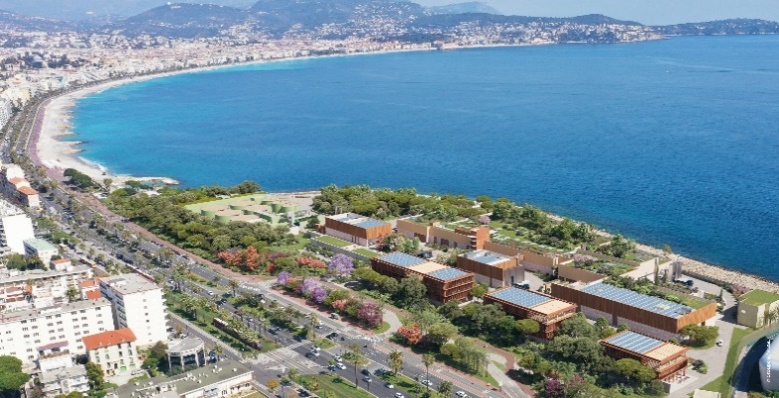
Christian Estrosi, alongside Suez, presented the future wastewater treatment and recovery complex of the Nice Côte d’Azur Metropolis on Thursday, April 20. An ultramodern station that would make Nice a pioneering city in France.
“Water resources are a major issue of our century, especially for our territory. It is our duty to do everything possible to protect it,” declares Christian Estrosi, Mayor of Nice and President of the Nice Côte d’Azur Metropolis. Together with Sabrina Soussan, CEO of SUEZ, he presents the outlines of a massive 700-million-euro project.
The project is designed to aim for environmental excellence and to anticipate the growing needs of the population. Thus, it is planned to treat the wastewater of 26 municipalities, equivalent to 680,000 inhabitants. Currently, the complex manages to treat 60% of the metropolitan wastewater, along with two municipalities outside the Metropolis.
This 2.0 station will be built on the current site of Haliotis, along the Promenade des Anglais, between the airport and La Lanterne beach. The entire site will be revegetated with 4.5 hectares of biodiversity comprising 600 trees, live hedges, and garrigue.
The start of the construction work is not planned before the second half of 2024. The service rollout will span from 2025 to 2030. This, “to guarantee the continuity of the public wastewater treatment service throughout the duration of the project,” promises the Metropolis.
A Climate-Neutral Project?
The treatment plant is expected to be at the cutting edge of technology and the first of its kind in France, and one of the largest in Europe. It aims to reuse the treated water. It is expected to recycle 5 million cubic meters of water per year, equivalent to the water needs for watering and cleaning in Nice for one year.
Recycling is not the only goal; these objectives also include tackling all types of pollutants, including microplastics. The station is expected to eliminate nearly 90% of them.
All while generating new sources of renewable and local energy (solar, biomethane, heating, and cooling for the buildings). Haliotis 2 promises to produce four times more energy than it consumes today. “A technological performance that meets the challenges of the coming years regarding water quality, circular economy, and decarbonization,” assures Sabrina Soussan, CEO of SUEZ.
The complex aims to fully participate in the objectives set by the Metropolis Climate Plan. This plan aims to reduce greenhouse gas emissions by 55% by 2030 and achieve carbon neutrality by 2050.